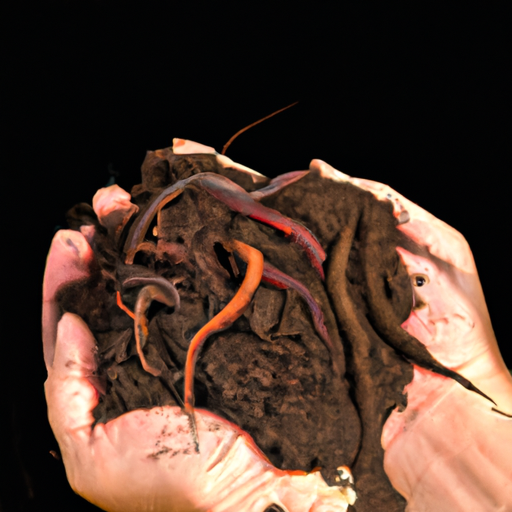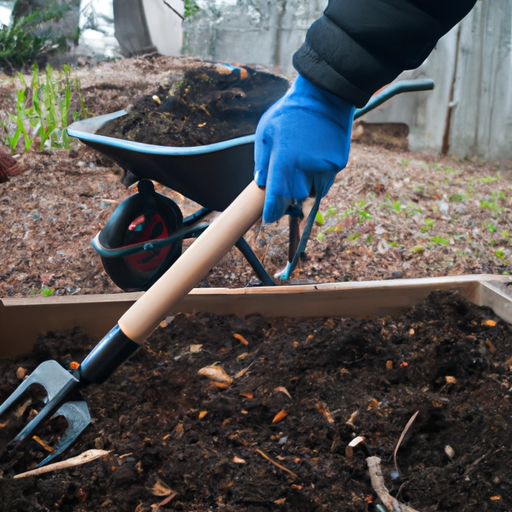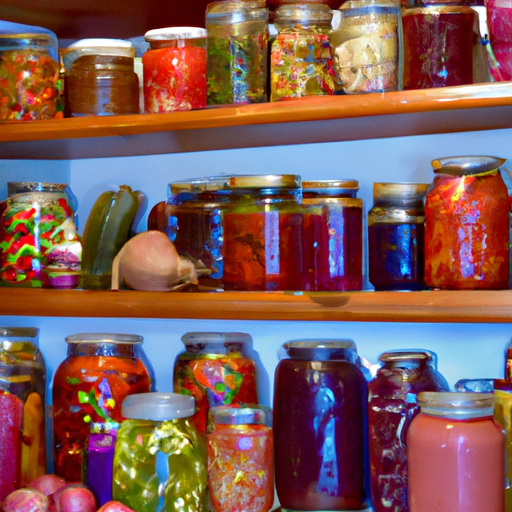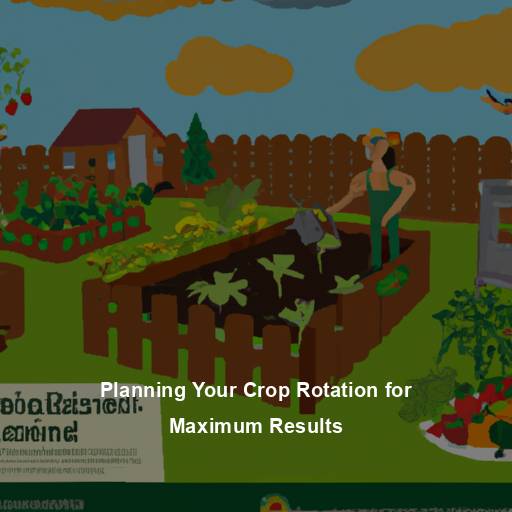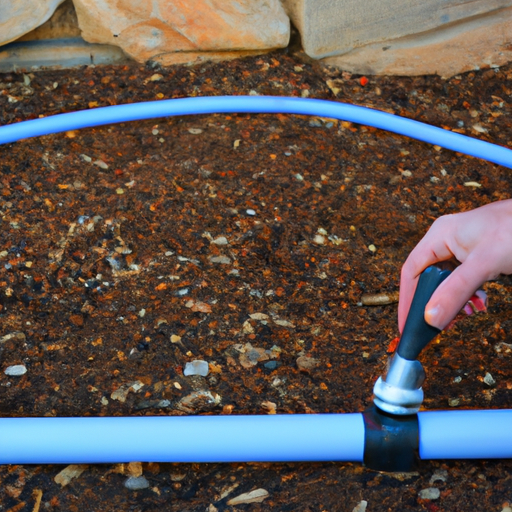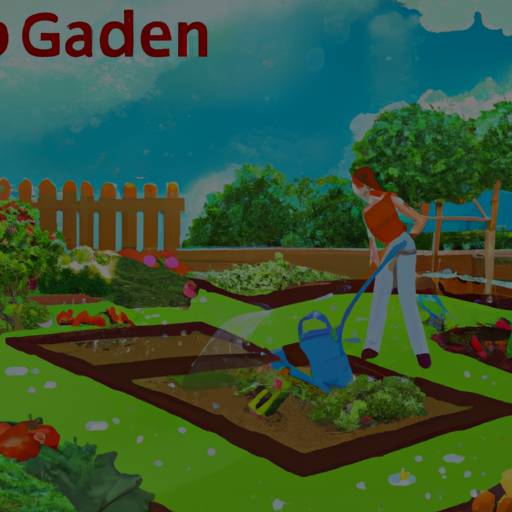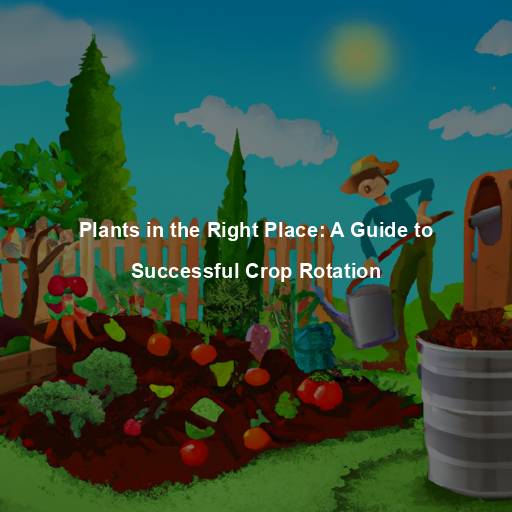Are you tired of struggling to grow healthy plants in your garden? It could be time to focus on the foundation of your gardening: the soil.
As a Master Gardener, I have seen countless gardens flourish or fail based on the quality of their soil. Luckily, there are natural ways to improve your garden soil without relying on chemical fertilizers and pesticides.
By making some simple adjustments and additions, you can create a thriving ecosystem that supports plant growth and provides vital nutrients. In this article, we’ll explore some tips and tricks for improving your garden soil naturally, so you can enjoy bountiful harvests and beautiful blooms all season long.
Understanding Your Soil’s Composition
As a Master Gardener, it’s essential to understand your soil’s composition before attempting any natural improvement methods. Conducting soil pH testing and soil texture analysis can provide valuable insight into your garden’s fertility levels and drainage capabilities.
Soil pH testing determines the acidity or alkalinity of your soil, which affects nutrient availability for plants. Texture analysis reveals if your soil is sandy, clayey, or loamy, affecting water retention capacity and root growth potential.
By understanding these factors, you can tailor natural solutions that address specific issues in your garden soil without relying on chemical fertilizers or pesticides.
Incorporating Organic Matter For Improved Nutrient Availability
Now that you understand your soil’s composition, it’s time to start improving it naturally.
Incorporating organic matter is essential for providing nutrients to your plants and increasing water retention in the soil.
Think of this as adding healthy ingredients to a recipe – the better the ingredients, the better the end result.
Composting techniques are an excellent way to add organic matter to your garden.
You can create a compost pile with kitchen scraps, fallen leaves, and yard waste.
As these materials decompose, they release valuable nutrients into the soil.
Mulching benefits include retaining moisture in the soil while suppressing weeds that compete with your plants for resources.
Use natural mulch such as wood chips or straw around trees and shrubs or even on vegetable beds to improve fertility over time.
By incorporating these practices into your gardening routine, you’ll notice healthier plants and improved yields in no time!
Using Cover Crops To Enhance Soil Health
As a Master Gardener, one of the best ways to enhance your garden soil health is by using cover crops. Cover crops are plants that are grown specifically for their ability to improve soil fertility and structure.
Choosing the right cover crop will depend on what you want to accomplish in your garden. Benefits of legumes as cover crops include nitrogen fixation, which adds valuable nitrogen to the soil, and weed suppression due to their dense growth habit.
Other popular cover crops include cereal grains like rye or oats, which help build organic matter in the soil while also suppressing weeds with their thick root systems.
By planting cover crops between growing seasons, you can protect your soil from erosion and nutrient depletion while improving its overall health naturally.
Promoting Soil Microbial Activity
After using cover crops to enhance soil health, the next step in improving your garden soil naturally is promoting microbial activity.
Microbes are essential for breaking down organic matter and making nutrients available to plants.
To promote microbial diversity, add compost tea to your soil. Compost tea is a liquid made from steeping compost in water that contains beneficial microorganisms. When applied to the soil, it helps improve nutrient uptake in plants and increases the number of microorganisms present in the soil.
Additionally, adding organic matter such as leaves or grass clippings can further increase microbial activity by providing food for microbes.
By promoting healthy microbial activity in your garden soil, you’ll be on your way to a thriving and productive garden.
Avoiding Common Soil Mistakes
Now that we’ve covered some natural ways to improve your garden soil, let’s talk about avoiding common mistakes.
One mistake many gardeners make is not testing their soil regularly. Soil testing is important because it tells you what nutrients are lacking in your soil so you can fertilize accordingly.
Another mistake is not composting. Composting benefits your soil by adding organic matter, which improves drainage and water retention while also providing nutrients for plants.
Remember to avoid compacting your soil as well since this limits root growth and reduces air circulation.
By avoiding these common mistakes and using natural methods like composting, you’ll be on your way to healthy, thriving garden soil without relying on harmful chemicals or synthetic fertilizers.
Frequently Asked Questions
How Can I Tell If My Soil Is Lacking In Certain Nutrients?
Before we dive into how you can tell if your soil is lacking in certain nutrients, let me address a common objection.
Some may argue that nutrient deficiency symptoms are hard to identify and it’s easier to just add fertilizer without knowing the exact deficiencies. However, this approach can actually do more harm than good as excess fertilization can lead to imbalanced soil pH levels and even damage plant roots.
The best way to determine which nutrients your garden soil lacks is through a simple Soil Test. This will give you an accurate reading of the pH level, organic matter content, and most importantly, the specific minerals that are missing from your soil.
Once you have identified any nutrient deficiencies, you can then look for Nutrient Deficiency Symptoms in your plants such as yellowing leaves or stunted growth.
By taking this proactive approach, you’ll not only save money on unnecessary fertilizers but also ensure that your garden gets exactly what it needs for optimal growth and health.
Can I Use Kitchen Scraps As Organic Matter In My Garden?
You absolutely can use kitchen scraps as organic matter in your garden! In fact, composting is one of the best ways to improve soil health naturally.
Composting tips include combining ‘green’ materials like fruit and vegetable scraps with ‘brown’ materials such as leaves or shredded paper. This creates a balanced mix that will decompose into nutrient-rich soil amendment over time.
Another great option for indoor composting is vermicomposting, which involves using worms to break down food waste into castings (worm poop) that are high in nitrogen and other nutrients beneficial for plant growth.
Vermicomposting benefits not only your garden but also helps reduce landfill waste. So next time you’re cooking up some veggies, don’t throw away those scraps – instead, add them to your compost bin or worm farm!
What Types Of Cover Crops Are Best For Enhancing Soil Health In A Vegetable Garden?
To enhance the health of your soil in a vegetable garden, it’s important to consider the types of cover crops you’re using.
Plant rotation is essential for maintaining healthy soil and preventing nutrient depletion.
Soil testing can also help identify any lacking nutrients and allow you to adjust accordingly.
You may want to try incorporating green manure into your gardening routine as well – this helps add organic matter back into the soil, which can improve its structure and fertility.
Crop diversity is another key factor that can contribute to healthier soil by providing a wider range of nutrients and reducing disease pressure.
With these steps in mind, you’ll be on your way to naturally improving your garden soil!
Is It Necessary To Use Commercial Fertilizers If I Am Promoting Soil Microbial Activity?
If you’re looking to promote soil microbial activity in your garden, commercial fertilizers may not be necessary.
Instead, consider incorporating composting benefits into your gardening routine.
Composting can help improve soil structure and increase nutrient availability for plants.
Additionally, natural pest control methods such as companion planting and using beneficial insects can also support a healthy garden environment without the use of harsh chemicals found in some commercial fertilizers.
As a Master Gardener, I highly recommend exploring these options before turning to synthetic solutions.
Can I Plant Directly Into Compost Without Adding Any Other Soil Amendments?
Can you plant directly into compost without adding any other soil amendments?
Yes, it’s completely possible.
This technique is called ‘lasagna gardening’ or ‘sheet composting.’ It involves layering organic materials like leaves, grass clippings, and food scraps on top of one another to create a nutrient-rich growing environment for your plants.
The layers decompose over time, creating a natural fertilizer that will help your plants thrive.
However, it’s important to note that planting techniques vary from crop to crop and the success rate may depend on specific factors such as local climate conditions, pH levels in the soil, and the availability of nutrients.
Composting methods can be an excellent way to improve soil health naturally, but it’s always recommended to do research beforehand and consult with a Master Gardener if necessary.
Conclusion
In conclusion, improving your garden soil naturally can be compared to baking a delicious cake with fresh ingredients. Just as you wouldn’t want to use stale flour or old eggs in your recipe, using depleted soil can lead to lackluster results in your garden.
By testing for nutrient deficiencies and adding organic matter like kitchen scraps and cover crops, you can create a healthy environment for plants to thrive.
As a Master Gardener, I highly recommend promoting soil microbial activity by avoiding commercial fertilizers and opting for natural methods instead.
And if you’re feeling adventurous, try planting directly into compost – it’s a great way to add nutrients while reducing waste!
With these tips in mind, your garden will be flourishing in no time. Happy gardening!
